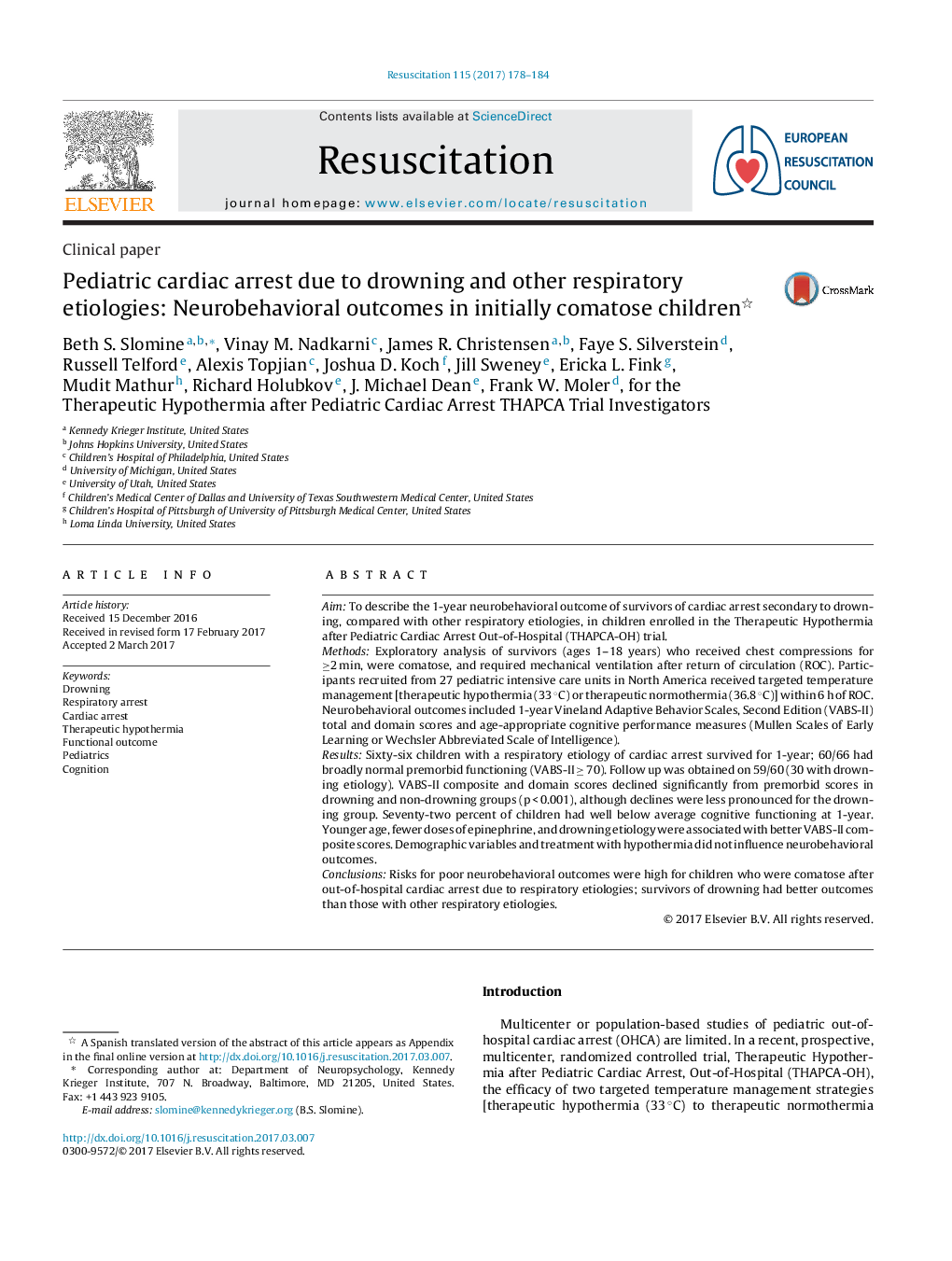| کد مقاله | کد نشریه | سال انتشار | مقاله انگلیسی | نسخه تمام متن |
|---|---|---|---|---|
| 5620265 | 1578969 | 2017 | 7 صفحه PDF | دانلود رایگان |
AimTo describe the 1-year neurobehavioral outcome of survivors of cardiac arrest secondary to drowning, compared with other respiratory etiologies, in children enrolled in the Therapeutic Hypothermia after Pediatric Cardiac Arrest Out-of-Hospital (THAPCA-OH) trial.MethodsExploratory analysis of survivors (ages 1-18 years) who received chest compressions for â¥2 min, were comatose, and required mechanical ventilation after return of circulation (ROC). Participants recruited from 27 pediatric intensive care units in North America received targeted temperature management [therapeutic hypothermia (33 °C) or therapeutic normothermia (36.8 °C)] within 6 h of ROC. Neurobehavioral outcomes included 1-year Vineland Adaptive Behavior Scales, Second Edition (VABS-II) total and domain scores and age-appropriate cognitive performance measures (Mullen Scales of Early Learning or Wechsler Abbreviated Scale of Intelligence).ResultsSixty-six children with a respiratory etiology of cardiac arrest survived for 1-year; 60/66 had broadly normal premorbid functioning (VABS-II â¥Â 70). Follow up was obtained on 59/60 (30 with drowning etiology). VABS-II composite and domain scores declined significantly from premorbid scores in drowning and non-drowning groups (p < 0.001), although declines were less pronounced for the drowning group. Seventy-two percent of children had well below average cognitive functioning at 1-year. Younger age, fewer doses of epinephrine, and drowning etiology were associated with better VABS-II composite scores. Demographic variables and treatment with hypothermia did not influence neurobehavioral outcomes.ConclusionsRisks for poor neurobehavioral outcomes were high for children who were comatose after out-of-hospital cardiac arrest due to respiratory etiologies; survivors of drowning had better outcomes than those with other respiratory etiologies.
Journal: Resuscitation - Volume 115, June 2017, Pages 178-184
